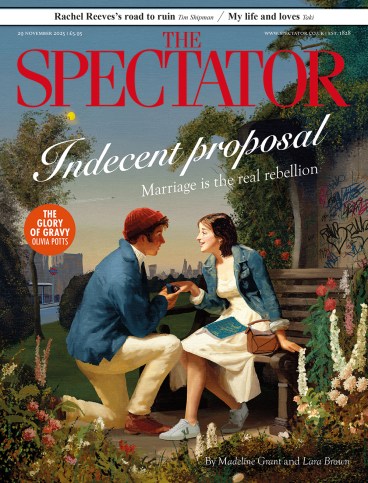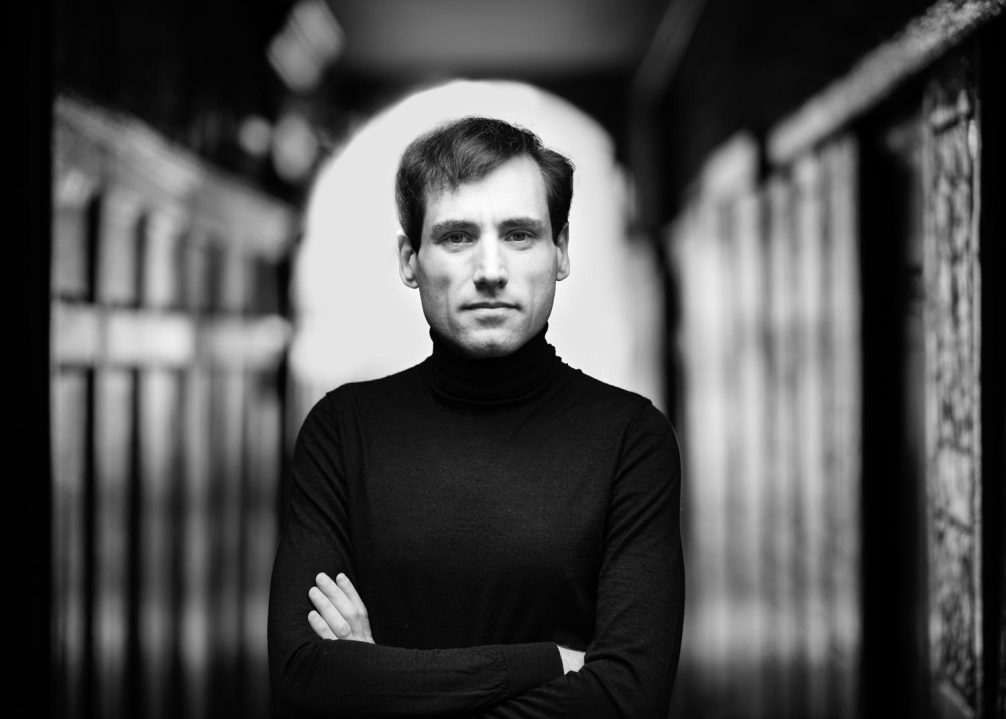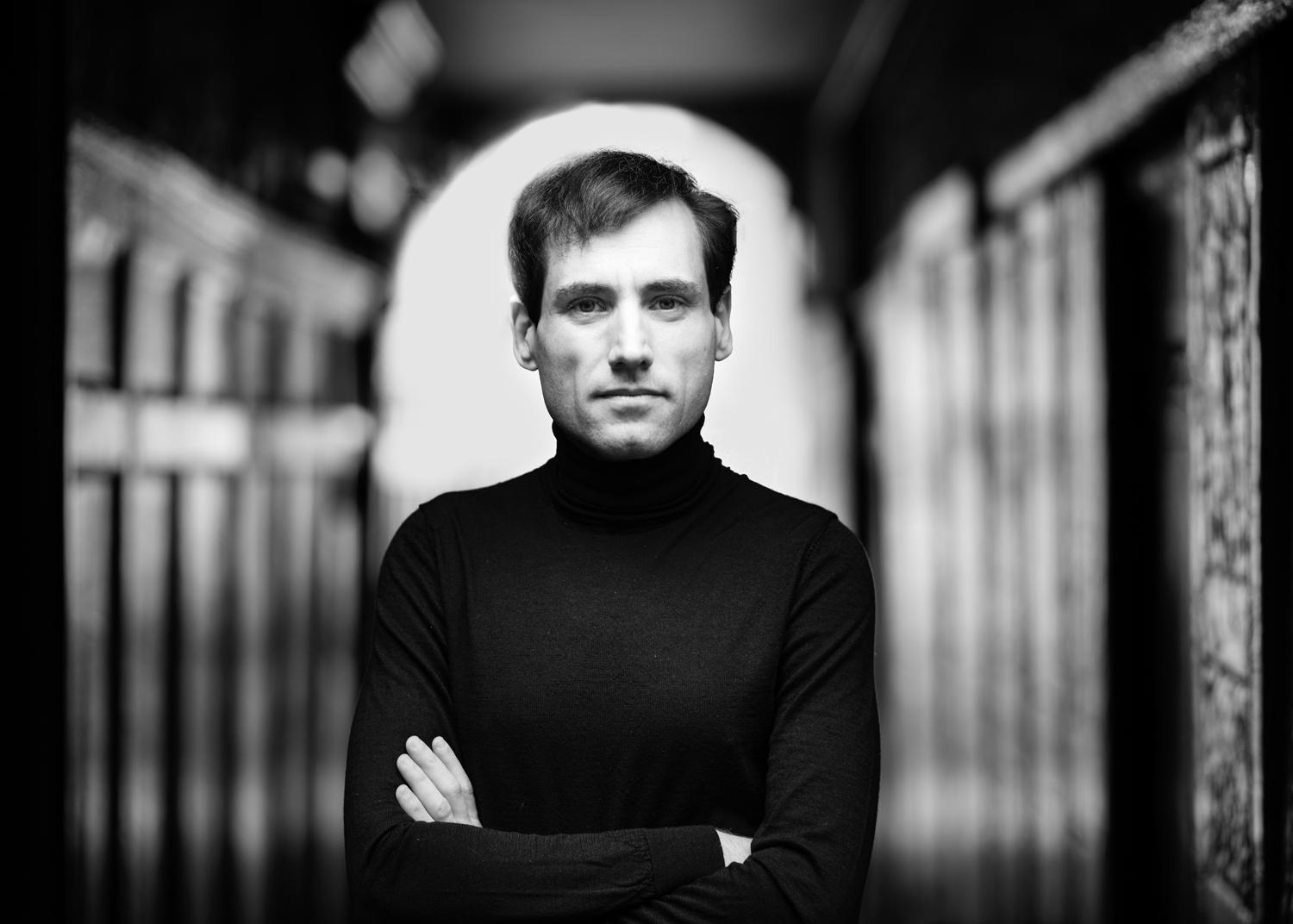
It was such an enticing programme, too. The Philharmonia had booked Evgeny Kissin, the last great piano prodigy of the Soviet era and one of the superstars of the late 1980s and early 1990s. And then there was the music: three Russian showpieces, including Rimsky-Korsakov’s enchanting and almost unplayed (in the UK, anyway) single-movement Piano Concerto. Better still, Kissin was down to perform Scriabin’s youthful Concerto in F sharp minor, a private passion that I’ve heard live only twice in four decades. Imagine a Russian Chopin, if Chopin knew how to orchestrate.
Gilltburg has the agility and power of an old-school keyboard lion, though he uses it with Bach-like objectivity
Too bad. Ill health forced Kissin to cancel, barely a week out, and from that point, in the Philharmonia offices, it will have been an exercise in damage limitation. It’s tempting to grumble when your much anticipated gourmet tasting menu is replaced with a carvery roast, but complaining about soloist cancellations is as futile as blaming a horn player for a split note. They’re a fact of musical life, and they’re hell on skates for orchestra managers. The frantic phoning and emailing to find a replacement, in an industry where artists are booked up to two years in advance. The rebooking of flights and hotels; the redrafting of rehearsal schedules. Then, when it’s all fixed, the business of informing the audience and fielding the inevitable complaints.
All in all then, it was a damn’ smart bit of staff work for the Philharmonia to secure a replacement of the calibre of Boris Giltburg, though there was never much chance that he’d have the Scriabin up his sleeve. In these circumstances you take what’s offered, and if – unsurprisingly – that turns out to be two thundering great warhorses, well, worse things happen. Giltburg played Prokofiev’s Third Concerto and Rachmaninov’s Second; utterly standard fare.
But that didn’t mean that the performance had to be routine, and from the opening flourish of the Prokofiev (does any 20th-century concerto have a more thrilling first piano entry?), Giltburg brought his own particular energy with him. He ricocheted in, as if on the rebound – bold and bristling with energy. No question, he has the agility and power of an old-school keyboard lion, though he uses it with Bach-like objectivity. Just the job for the Prokofiev, in which Giltburg’s brightness seemed to spread, over the course of each movement, to the whole orchestra.
Lawrence Foster conducted, and after a no-nonsense account of Rachmaninov’s early tone poem The Rock (some consolation there for the rare repertoire collectors) Giltburg was back for the Second Concerto, a work in which it’s hard to imagine that anyone has anything very new to say. Giltburg did: the quiet way he rolled the opening chords, as if improvising; the unexpected tension that Foster brought to the orchestra’s opening melody (as if it was simply an introduction, in the manner of Tchaikovsky’s First Concerto) and then in the slow movement, Giltburg’s sudden reveal – after an evening of whirling, laser-cut clarity – that he could melt with the best of them. This was brilliance without grandstanding. Orchestra and soloist raced hand-in-hand for the final bar; cue smiles from the players and a roar of enthusiasm from the audience. Not what we’d expected, but not half bad.
The main thing to know about English National Opera’s revival of Handel’s Partenope – the much-admired 2008 production by Christopher Alden – is that the acting, singing and direction are all great. But boy, it goes on. Partenope is a comedy, an identity-swap farce with a plot that even Handel’s agent Owen McSwiny considered too stupid for the British stage. Not any more, it seems, and in truth Handel’s music is bouncier and lighter on its feet than his usual opera seria style. You could imagine Partenope making a delightful 50-minute intermezzo. Fat chance: Handel keeps spooling the stuff (and nonsense) out for a leg-numbing three and a half hours, which Alden apparently saw no need to cut. The sets looked like they could do with some TLC too.
Alden updates the action to the avant-garde 1920s – Man Ray, Kiki de Montparnasse, that whole Dada vibe – and somehow, miraculously, he finds something amusing for the characters to do throughout. The cast is endlessly nimble – hanging off staircases, tumbling in slow motion, doing silly things with bananas and singing gloriously the whole time. They’re all engaging, but Nardus Williams (Partenope) and Hugh Cutting (Arsace) are the standouts. She exudes feline elegance while singing with glittering panache; he takes a late nocturnal aria and against all odds, makes it clutch at your heart – wonderfully subtle and tender. It’s sung in English (sparky rhyming couplets by the late Amanda Holden) and Christian Curnyn conducts, though on opening night he fell ill and was replaced after Act One by William Cole. You’re unlikely to feel short-changed, but do check the time of your last train home.








Comments